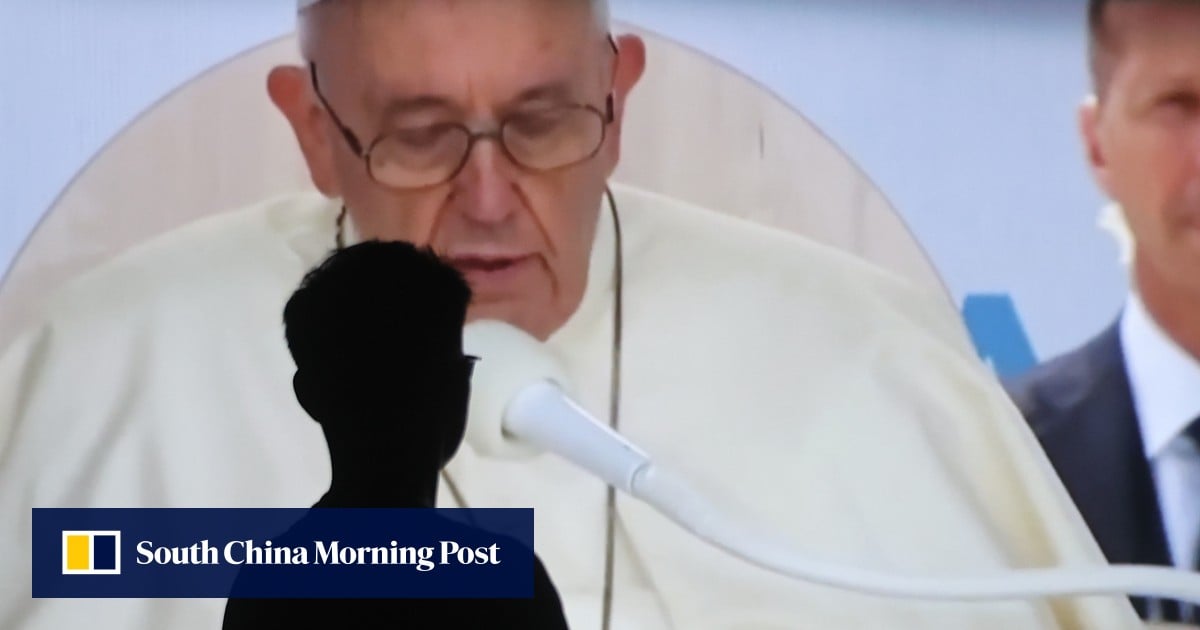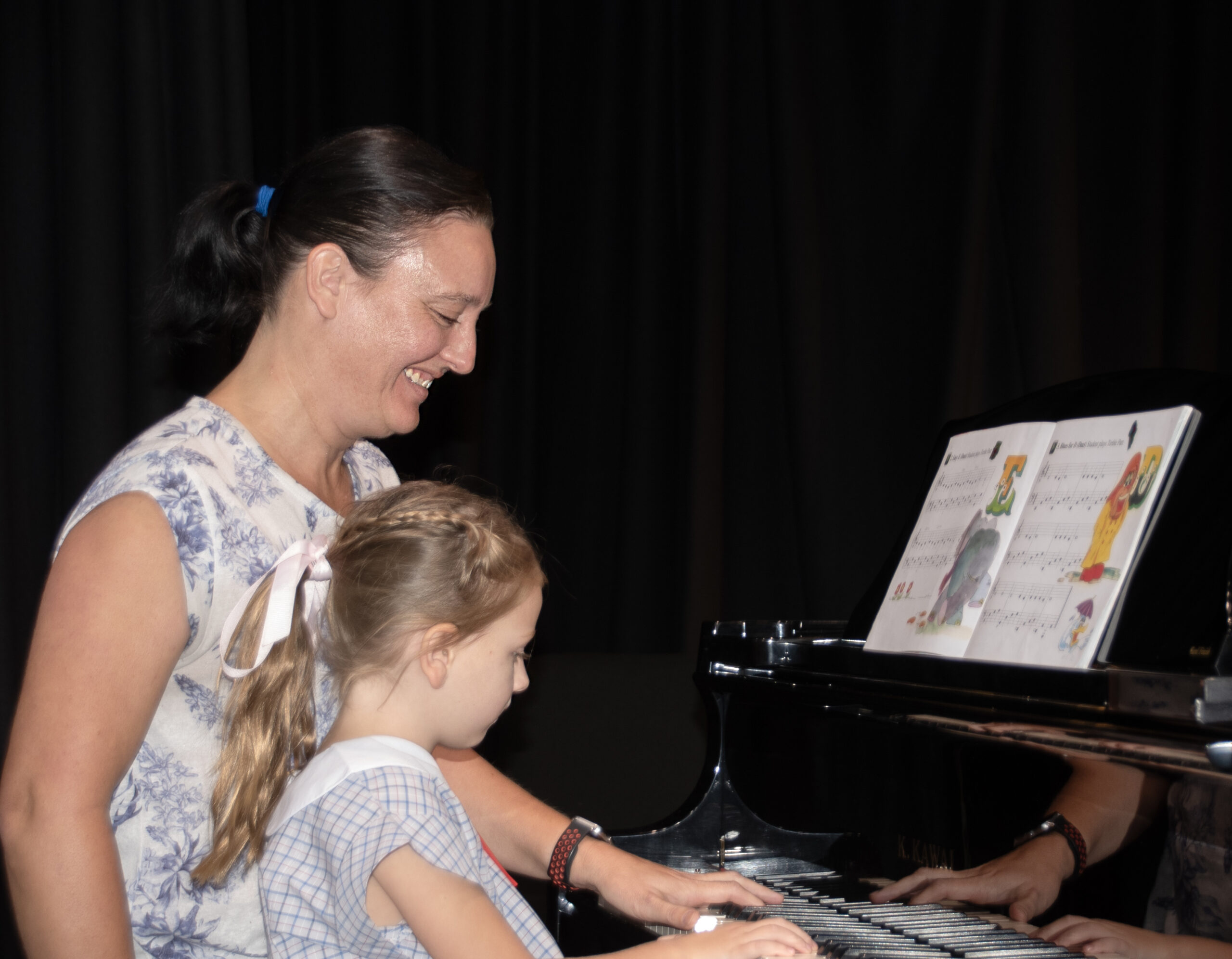The piece features 161 televised political apologies, showing politicians from around the world – including presidents, heads of state and cabinet ministers – apologizing for various crimes against humanity committed by their countries.
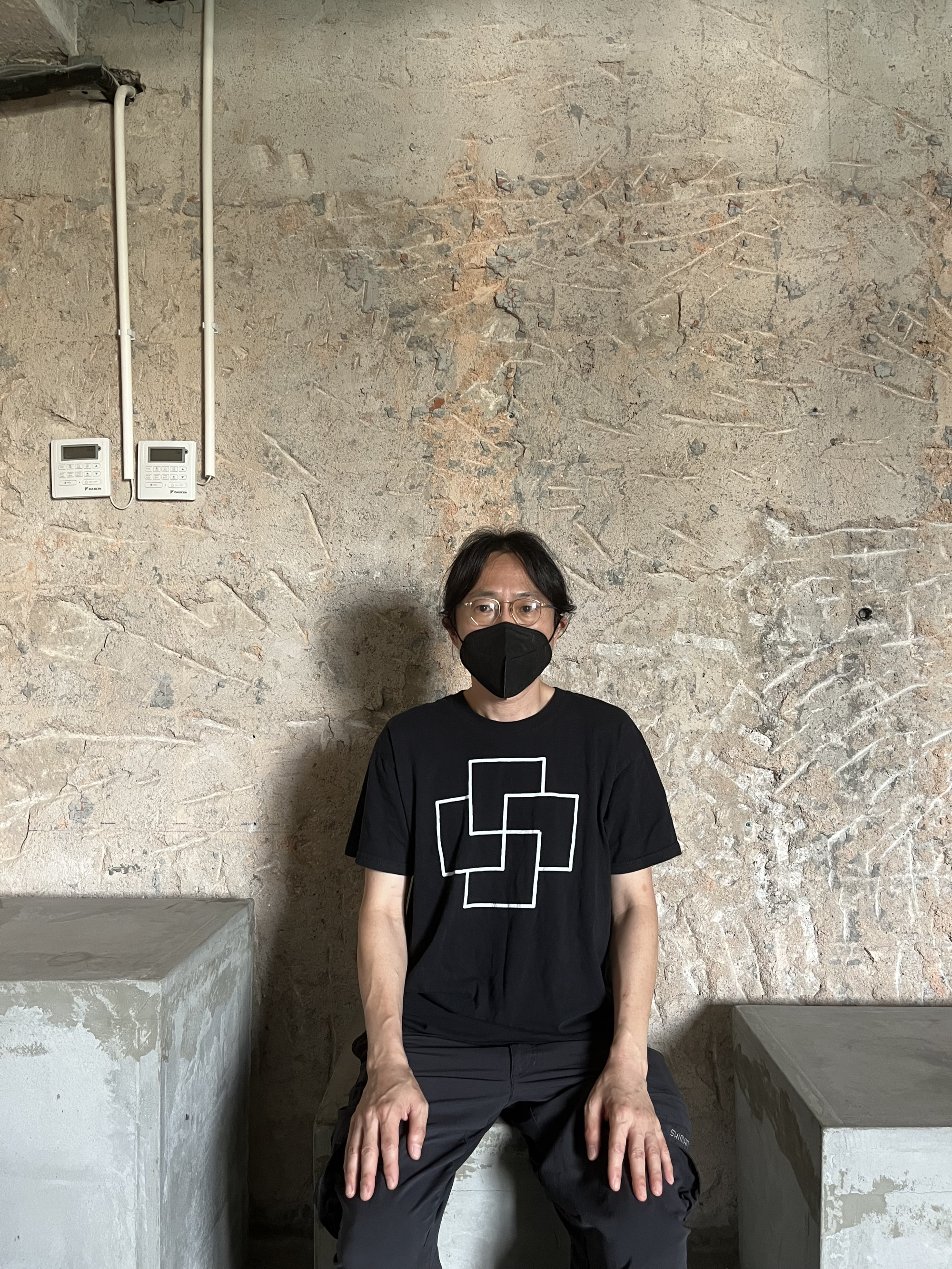
The installation is on display at the Tin Wan Empty Gallery in Aberdeen, Hong Kong, as part of the artist’s solo exhibition “Apologies and Other Regrets”, which was first shown in 2012.
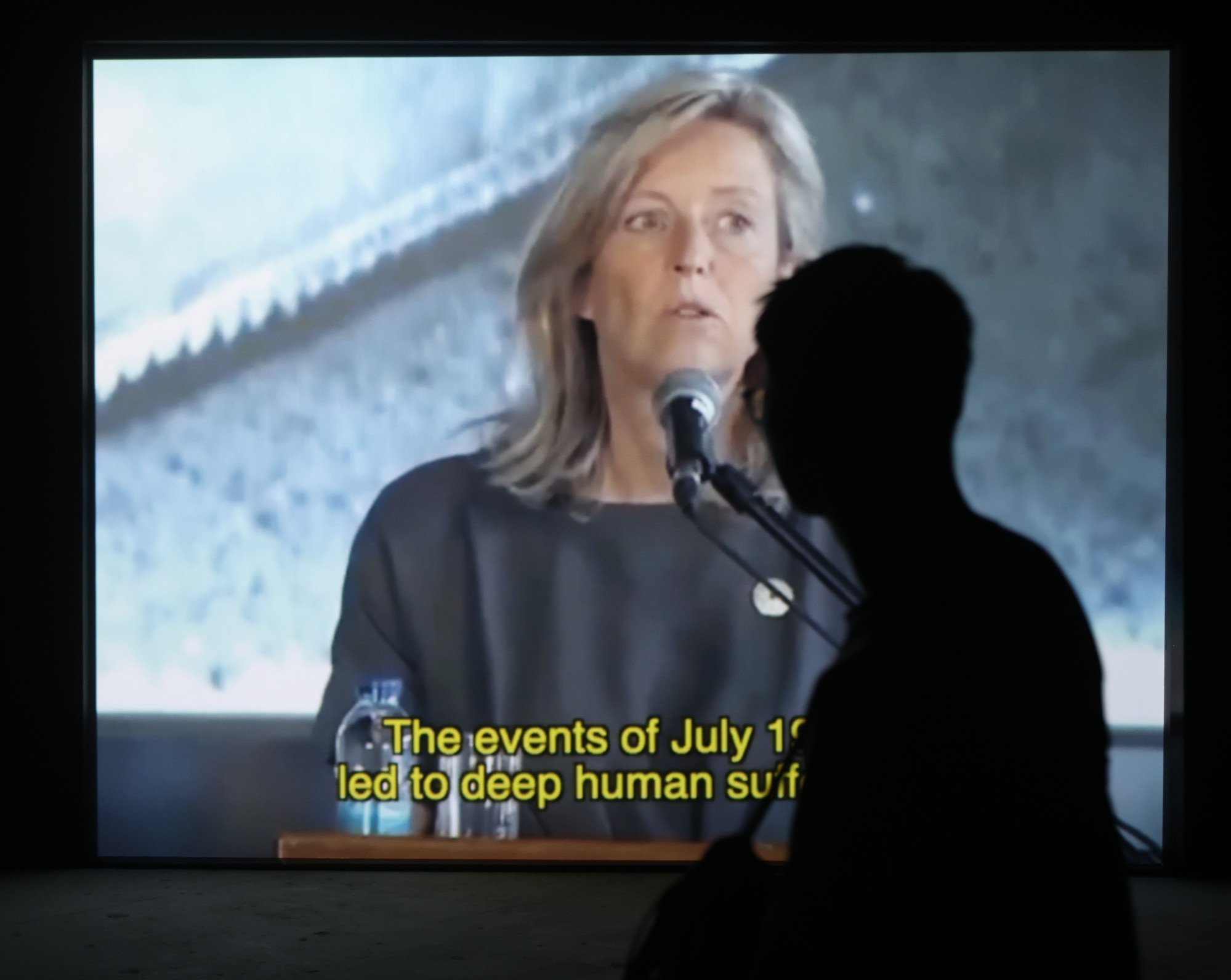
Hong came up with the idea after meeting many Chinese who claimed Japan never apologized for the Second Sino-Japanese War. At the time, he was interviewing and researching victims of political and biological warfare for documentaries.
“Initially, I would correct them and say that Japan actually did apologize a few times,” he said. “But the Chinese people I met never believed me, so I started compiling these apologies, starting in Japan and then spreading to other countries.”
Year after year, artists are constantly updated Apologize with new recordings. Today, it provides a snapshot of modern history while explaining some of the world’s most shocking atrocities.
I suspect some politicians just feel bad […] Points to Apologize [is] gain political capital
“I’m a perfectionist,” Hong said of his decision to include every relevant apology he could find. “That’s why it’s over seven hours long.”
For visitors, these seven hours offer many opportunities to dissect and reflect. First, these political apologies are inherently performative—they often feature false sincerity, passive language, and narrative arcs that appeal to people’s emotions.
“To me, most apologies are gibberish,” Hong said. “That’s just the truth. Not all, but most involve unforgivable crimes against humanity.
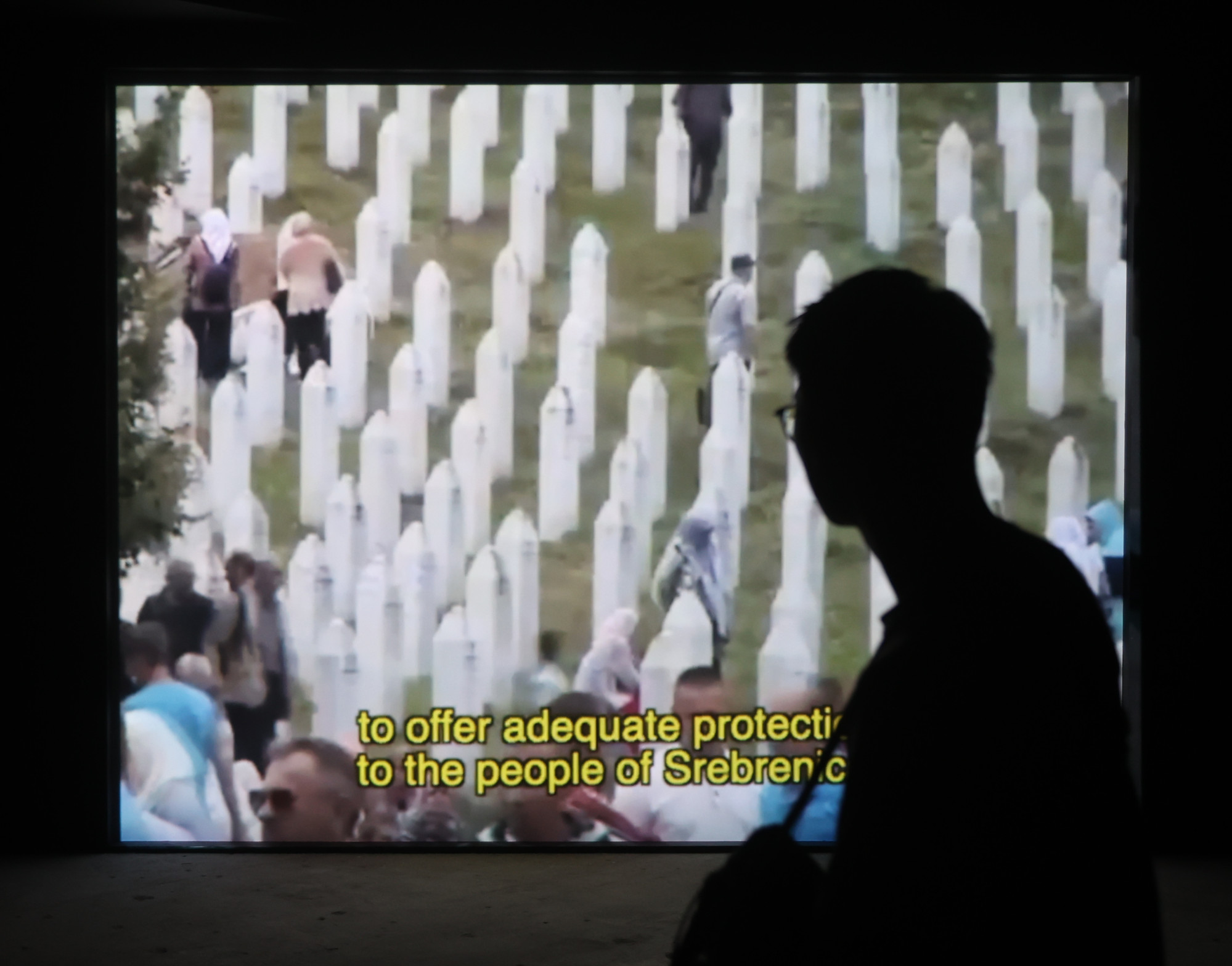
“I suspect some politicians just feel bad about something and want to apologize for it […] Points to Apologize [is] to gain political capital.
If visitors watch Apologize Throughout, they will see that Western and liberal countries tend to apologize more because their politicians need to maintain broad public support to remain relevant. But Hong explained that other countries are also increasingly willing to apologize.
Over time, the apologies became longer and more polished. The topics discussed have also changed, he said.
“There’s a lot that can be addressed and apologized for,” he said. “When Germany first apologized for the Holocaust, decades after World War II, no one would ever think of apologizing to African Americans, Native Americans, or LGBTQIA+ [community]”.
Of interest are not only those countries that chose to apologize, but also those that did not.
Governments are supposed to protect their citizens but end up oppressing them
“Vietnam didn’t apologize to me, Thailand didn’t apologize to me, and Thailand is a monarchy, which is interesting,” Hong said.
“Thailand is a developing country and human rights violations happen every day. You might think they have a lot to apologize for, but as far as I know, Thailand has never done so.
Although the frequency of apologies has increased over the years, Hong is generally critical of apologies because they rarely lead to change. “Apology is not that important. What is more important is responsibility and justice.
Apart from ApologizeHong also showed stabbing in the backa series of four sculptures depicting states of betrayal.
Inspired by the British fable of the Sword in the Stone, each of these sculptures features a faux foam rock impaled by a real bayonet used during the Second Sino-Japanese War, a tribute to collector and Japanese soldier Hong Cong. Purchased there.
“This involves ApologizeIt’s also how the government is supposed to protect its citizens but ends up oppressing them,” he said.
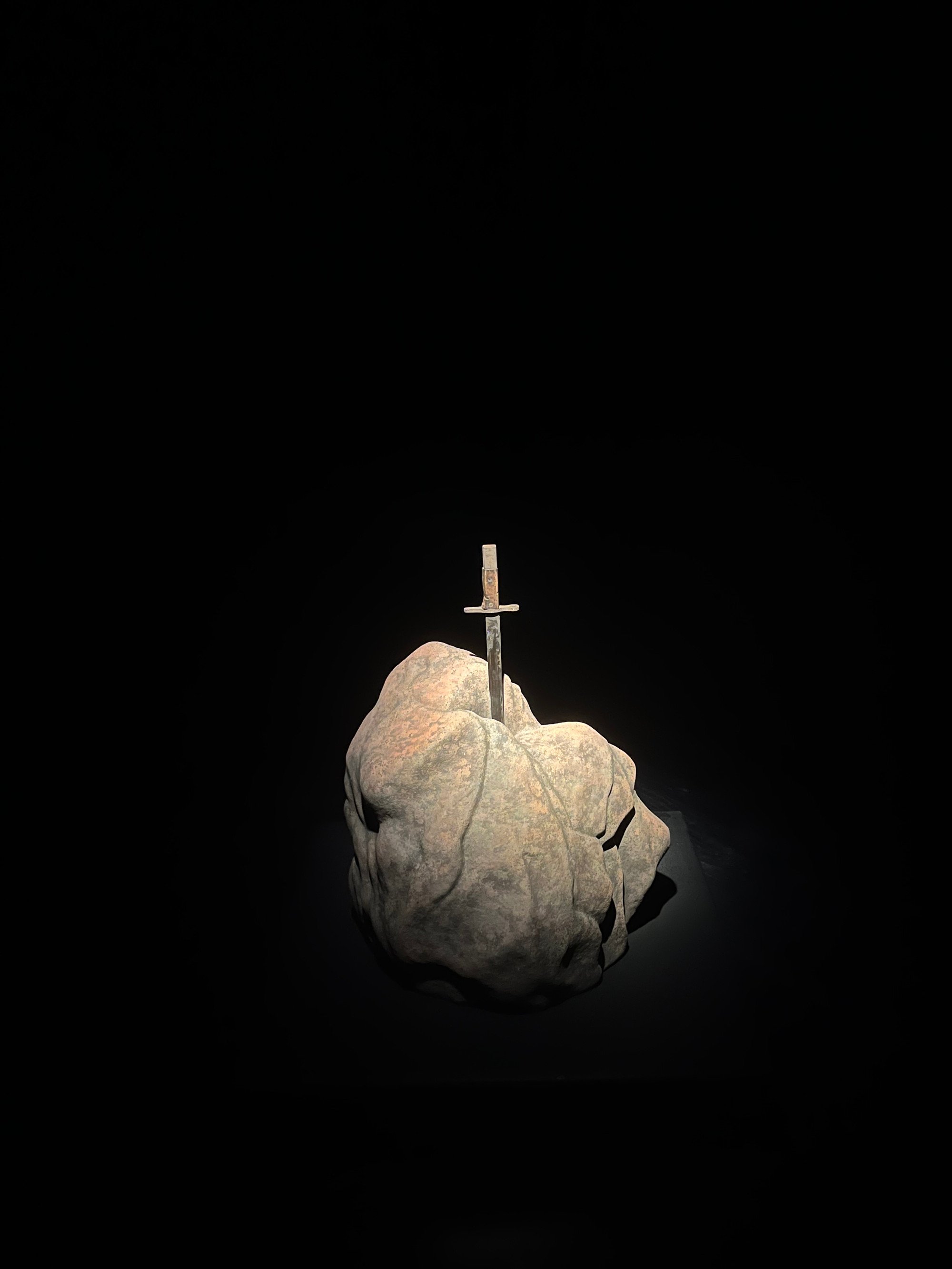
“I thought more about actually being stabbed in the back, so the idea of a best friend gossiping about you, a spouse divorcing you, a family member betraying you, and how that idea of trust and betrayal becomes something we all A common experience that everyone has.
“Apologies and Other Regrets”, Empty Gallery, 18-19/F, Maritime Centre, 3 Yue Fung Street, Tin Wan, Tuesday to Saturday, 11am to 7pm. Until August 17th.

